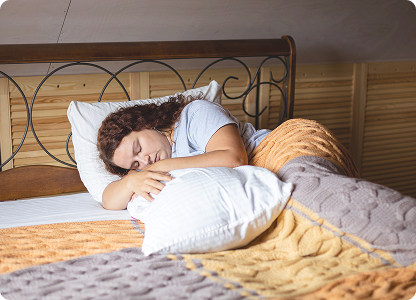Why sleep is so important after weight loss surgery

Okay, let’s talk about something that doesn’t always get the spotlight it deserves after bariatric surgery: sleep.
We get it—when people think about recovering from weight loss surgery, they usually focus on things like diet, exercise, supplements, hydration, protein, vitamins… the list goes on. Sleep is usually an afterthought.
Let’s be super clear: sleep is not optional, especially not when your body is healing, adjusting, and basically going through a total life transformation.
Here’s why you need to start taking your sleep seriously:
1. Your Body Does Its Best Healing While You Sleep
After surgery, your body is in full-on recovery mode. Think of sleep as your body’s version of putting up a "closed for repairs" sign. While you’re off in dreamland, your body is repairing tissues, reducing inflammation, balancing hormones, and doing all the behind-the-scenes work to help you heal.
The better your sleep, the smoother your recovery.
2. Sleep Helps With Weight Loss
This one surprises a lot of people, but it’s true. Poor sleep can slow down weight loss.
When you’re not getting enough sleep, your hunger hormones (ghrelin and leptin) go a little haywire. You might feel hungrier, crave junk food, and have less willpower to stick to your meal plan. Plus, low energy = less motivation to move your body.
So, if you're putting in all that effort during the day—healthy meals, vitamins, walking—don’t let lack of sleep undo it all.
3. Your Mental Health Depends on It
This whole journey is a lot – big changes, big emotions, and big adjustments. Getting enough quality sleep can help keep your mood stable and reduce stress, anxiety, and even depression. It’s like mental armour.
Everything just feels a little more manageable after a good night’s sleep.
4. Your Immune System Needs Sleep Too
Post-op, your immune system is already working overtime. Don’t make it harder by skipping sleep. Rest is one of the best ways to keep your defences strong and avoid infections or other complications.
So… How Much Sleep Are We Talking?
Aim for at least 7–9 hours a night. Everyone is different, but if you’re waking up tired, dragging during the day, or nodding off in front of the TV, chances are you need more.
Make sleep a priority, not a luxury.
Quick Tips for Better Sleep After Surgery:
- Set a sleep schedule and stick to it, even on weekends.
- Avoid screens an hour before bed—your brain needs a wind-down.
- Cut caffeine after lunch (sorry, coffee lovers).
- Make your bedroom a sleep sanctuary—dark, quiet, and cool.
- Listen to your body—naps are okay in moderation, especially early in recovery.
Final Thoughts
Getting your sleep on track might not sound as exciting as seeing the number on the scale drop or buying new clothes—but it’s just as important. Think of sleep as your secret weapon for recovery, weight loss, and just feeling good again.
So tonight, when you tuck yourself in, remember: you're not being lazy. You’re doing something powerful for your body.
Now go catch those ZZZs. You’ve earned ‘em!
Subscribe to Insights & Advice
Stay informed and supported on your journey with expert insights, practical tips, and the latest clinic updates straight to your inbox.
Start your weight loss journey with Brisbane Bariatric Centre today
If you’re thinking about weight loss surgery or just want to know what’s possible, we’re here to help. Get in touch to book a chat with Dr Justin Greenslade and find out what’s right for you.





